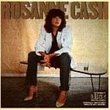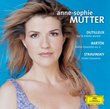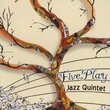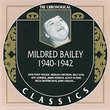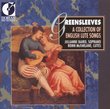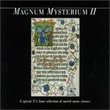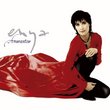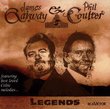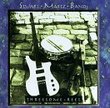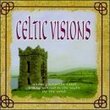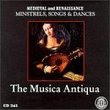| All Artists: Henry Purcell, Andrew Parrott, Emma Kirkby, David Thomas, Taverner Players, Taverner Choir, Judith Nelson, Tessa Bonner, Judith Rees, Janita Noorman, Rachel Bevan Title: Purcell: Dido & Aeneas / Kirkby, Thomas, Nelson, Taverner Players, Parrott Members Wishing: 1 Total Copies: 0 Label: Chandos Release Date: 7/29/1992 Genre: Classical Styles: Opera & Classical Vocal, Chamber Music, Historical Periods, Baroque (c.1600-1750), Classical (c.1770-1830) Number of Discs: 1 SwapaCD Credits: 1 UPC: 095115052129 |
Search - Henry Purcell, Andrew Parrott, Emma Kirkby :: Purcell: Dido & Aeneas / Kirkby, Thomas, Nelson, Taverner Players, Parrott
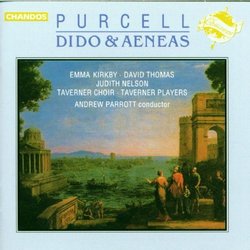 | Henry Purcell, Andrew Parrott, Emma Kirkby Purcell: Dido & Aeneas / Kirkby, Thomas, Nelson, Taverner Players, Parrott Genre: Classical
In this first period-instrument recording of Dido, Andrew Parrott tries to re-create the first known performance of the work--at Josiah Priest's School for Young Gentlewomen in London. Here (as there) the cast includes onl... more » |
Larger Image |
CD DetailsSynopsis
Amazon.com In this first period-instrument recording of Dido, Andrew Parrott tries to re-create the first known performance of the work--at Josiah Priest's School for Young Gentlewomen in London. Here (as there) the cast includes only one male--David Thomas, whose brawny Aeneas could overwhelm Dido physically as well as emotionally. Judith Nelson is a warm, sweet-toned Belinda; the Sorceress gets a vivid, raucous, love-it-or-hate-it performance by the legendary medieval-cum-folk-singer Jantina Noorman. Emma Kirkby, early in her career, sounds eloquent but extremely youthful as Dido--barely past her teens. This makes for a different, perhaps more credible, tragedy: a new, slightly immature queen, servant rather than mistress of her emotions, angrily refuses to take back the lover who abandoned her--only to die heartbroken after banishing him. --Matthew Westphal Similar CDs
Similarly Requested CDs
|
CD ReviewsAn hour of unalloyed pleasure Mark Swinton | 02/10/2000 (4 out of 5 stars) "I studied "Dido and Aeneas" about two years ago having performed in it at school, and at this precise moment I am four weeks away from another production with the York University Chamber Choir. In the words of our conductor Peter Seymour, this piece is indeed an hour of unalloyed pleasure, and this is one of the best out of at least five recordings I am familiar with. Emma Kirkby's wonderfully pure voice is just the thing to create the true Dido effect: most other soprani interpret it well but bring an inappropriately operatic vibrato to a quintessentially Baroque sound world. In some ways this is also a disadvantage, as her Dido also sounds rather more young and innocent than we might imagine, but then again, what else is opera about but a catalyst for the imagination? One other performer needs complimenting, namely Jantina Noorman, who sincerely had me shivering from her first note as the Sorceress. The casting is not entirely brilliant - why did they have a soprano as the Sailor? - but the Taverner Choir adds a sparkling vocal background whilst the linked orchestra is also very good and very well directed. The only further problem I would add (and a minor problem at that) is the division of the tracks - there are only four tracks, whereas the technology available to later producers has enabled them to split the opera up more conveniently for students and listeners who buy this for particular favourite moments.This release is now 19 years old - but Chandos still have every reason to be proud of it." Brilliantly Cast but not Brilliantly Recorded Leslie Richford | Selsingen, Lower Saxony | 11/02/2008 (3 out of 5 stars) "Henry Purcell: Dido and Aeneas. Opera in 3 Acts. Words by Nahum Tate. First performed in 1689 at Josias Priest's Boarding School, Chelsea. Performers: Emma Kirkby (Dido); Judith Nelson (Belinda); Judith Rees (second woman); David Thomas (Aeneas); Jantine Noorman (Sorceress); Emily van Evera and Rachel Bevan (Entchantresses); Tessa Bonner (Spirit); Rachel Bevan (Sailor); the Tavener Choir and the Taverner Players, dir. Andrew Parrott. Recorded at Rosslyn Hill Chapel, London on 3rd to 5th January, 1981. First released on Chandos in 1981. Re-released as Chandos Chaconne 0521 in 1991. Total playing time: 56'08".
This was the first-ever historical recording of "Dido and Aeneas" and needs to be judged on that merit. It was also the recording with which I got to know the piece, so it will always bear a special place in my "listening heart", even though I have gone on to obtain newer recordings of the same piece. Andrew Parrott has always been a very consequential conductor, some would perhaps say radical, and here he attempts to reconstruct what was, back in 1981, considered the first performance of Dido and Aeneas, at a girls' school in Chelsea. Consequently, all the roles except Aeneas are taken by sopranos and mezzos, Aeneas being sung by the somewhat gruff and throaty David Thomas, who, however, in 1981 was still at his best, possibly sounding just a little too masculine for the wavering Aeneas. Emma Kirkby (now Dame Emma Kirkby) sings Dido absolutely beautifully, the only caveat being the youthful innocence of her voice - the text sometimes indicates that Dido was something more than just an impressionable maiden. The witches here are the best I have ever heard, with Jantina Noorman really spine-chilling, although her "singing", if such one may call it, comes straight from the world of the musical or the mock-medieval fairground. The Taverner Players are here a fairly small orchestra, but the list of names of those involved is like a who's who of Britain's early music scene: John Holloway, Alison Bury, Roy Goodman, Monica Huggett, Simon Standage, Elizabeth Wilcock (violins) ... and so it goes on - it would have been very difficult to gather a band of better musicians for this piece. The Achilles heel of all this is the engineering on this 1981 digital recording: while capturing everything fairly audibly, the engineers appear not to have been able to bring everything into the foreground; the whole is somewhat pale and can lead to the listener turning up the volume, although that doesn't really help to get rid of what I have termed the "digital mist" which appears to swirl around the whole production. Yes, it is a perfectly okay recording, but in comparison with newer versions, it does become obvious that Chandos (like other companies) were having their teething-troubles with the new digital technology. There are very many newer recordings which have the advantage of better technology and are not so strict on using only female voices (research seems to have shown that maybe Joshua Priest's school was not the place of the first performance anyway). I own those by Nicholas McGegan, excellent for its theatrical approach (Purcell: Dido and Aeneas; Music for "The Gordian Knot Unty'd") and by Emmanuel Haim, sporting none other than Ian Bostridge as Aeneas (Purcell: Dido and Aeneas), but there are plenty more on the market (try searching Pinnock, Harnoncourt, Ivor Bolton, Hogwood, for example). And do avoid re-issues from before Parrott's time: it is unbelievable what pre-early music producers would do to this wonderful piece of English cultural history (even to the extent of having Wagner prima donna Kirsten Flagstad appear as Dido at the age of 57!)." |

 Track Listings (4) - Disc #1
Track Listings (4) - Disc #1